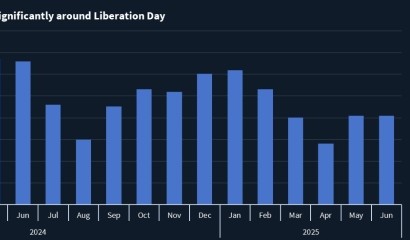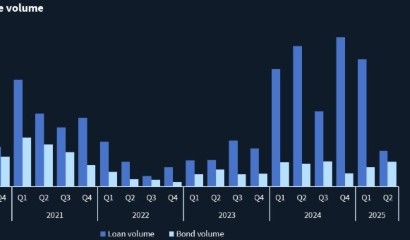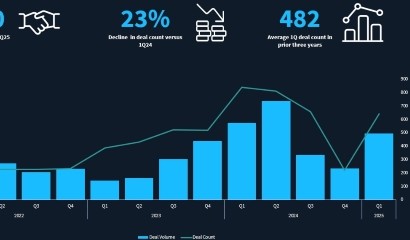Argentina’s Milei negotiates for support of 97 legislators to pass ‘downsized’ omnibus law with 200 articles
Argentina president Javier Milei is considering whether to downsize his omnibus law to have around 200 articles, instead of 660, to be able to pass it through the country’s Lower Chamber before 24 January, two sources close to the matter said.
A group of 97 legislators from opposing parties including PRO, Union Civica Radical (UCR) and Federal Peronism which are willing to support the bill have been holding talks with representatives of ruling party La Libertad Avanza (LLA), said the first source, a PRO representative. The group has asked LLA to downsize the omnibus bill, leaving the reforms linked to health, education, cultural and electoral issues to be discussed in March or later, said the source.
The national government wants the bill to have the approval of the relevant Lower Chamber commissions by Friday so that the chamber can vote on the bill before 24 January, when there will be a general strike called by the national confederation of labor (CGT, in its Spanish acronym), both sources said.
“The social reaction could be an important factor in stopping this law,” Claudio Lozano, a former national deputy and now president of the Union Popular party, an ally of former ruling party Union por la Patria (UxP). If the 24 January strike “is big enough, it could influence how lawmakers vote,” he told Debtwire.
The 97-member group has joined forces to negotiate as “an informal block” to have more leverage to discuss what they consider are the most relevant changes to the bill, said the second source, from the Peronismo Federal block. These 97 votes added to the 38 that LLA has will be enough to pass the bill through the Lower Chamber.
If negotiations move forward as expected, the proposed law will be left with around 200 articles linked to tax, energy, and economic activity in general, instead of 660, the first and second sources said. These 200 articles are considered the heart of the bill by LLA, and still, some of them would have to be modified to be passed, said the sources.
The LLA representatives have agreed to leave certain issues to be discussed later, both sources said. Now, the negotiations are focused on the proposed modifications to the articles that would remain as part of the law, they said.
The group has proposed to eliminate an article that sets a 15% export tax on products such as fruit, milk, peanuts and olives, among others, the sources said. These sectors now do not pay export taxes, as reported. This is a request from provincial governors linked to some of the legislators that form the 97-member group, the sources said.
Governors “will have an important say on the omnibus law,” said Lozano. The executive power “has influence on legislative votes as it is restricting funds to the provinces which Milei’s government can use as part of its negotiations.”
“The government could get support from at least 16 out of the 24 provinces,” Lozano stated. “This includes eight provinces led by the Radical party, three provinces led by the Pro party, along with the five provinces that are led by the provincial parties.”
The group of allied legislators also wants LLA to modify the articles related to pensions, which propose to cancel the current inflation adjustment formula used to automatically update pension payments, the sources said. Some sort of inflation adjustment formula should be granted to pensions, the first source said.
Moreover, these legislators are willing to allow for the declaration of a national emergency and grant President Milei extraordinary powers only for one year, instead of two, as currently set in the omnibus bill; and with no possibility of extending it for another two years, the sources said.
The chapter on privatization of public companies is also another point of discussion, as the legislator group wants each privatization to be approved by Congress, said the second source.
“There’s no clarity whether Milei will accept the proposed changes,” despite the good dialogue between the 97-member group and Martin Menem, the leader of the LLA representatives in the Lower Chamber, said the second source. “Milei’s declarations accusing legislators of seeking to take bribes to vote in favor of the bill are not helping,” the source stated.
However, Menem told the group that LLA is studying the proposed changes, the sources said.
Challenges to deregulation decree
While discussions regarding the omnibus law continue, president Milei is also monitoring the situation regarding the presidential decree (DNU, in its Spanish acronym) seeking a broad deregulation of the economy, according to the first source.
The application of certain chapters of the DNU was recently suspended by court injunctions, including the one related to labor reforms.
Despite the suspension of particular chapters, “right now, the decree is valid because nine days have passed since it has been published,” Lozano said. “The only thing that could affect this is if the court declares it unconstitutional or if the two chambers of Congress reject it.”
Lozano filed for an injunction suspending the decree, which is still under court review, he said.
At the same time, Vilma Ibarra, the former legal and technical secretary of the presidency during the Alberto Fernandez administration (2019-2023), has argued the DNU should be declared null as it was crafted by private legal firms, she wrote on her X account.
“No public Ministries have participated in the elaboration of Decree 70/23 and nor have they issued technical reports explaining the public interest of that regulation. Who wrote the DNU? The response to this question is key because it pertains to the validity of the DNU as an administrative act,” Ibarra stated in X.
“A DNU has to be elaborated, written and signed by public officials, who are controlled by the Public Ethics law, and have to present a public affidavit of their assets each year,” Ibarra wrote. “What sort of controls could be applied to private law firms? How can we monitor their asset evolution or that of their clients who can be benefitted by the DNU?”
Milei’s DNU was authored by former Central Bank President Federico Sturzenegger, who is not currently a public official, as reported.
Legislators of UxP are seeking to call a session next week at the Lower Chamber to vote on the rejection of the DNU, said the second source close. It is not clear whether they have the votes to do that, the source stated. In any case, the DNU would also have to be rejected by the Senate for it to be invalidated.
A spokesperson for President Milei was not available to comment.











